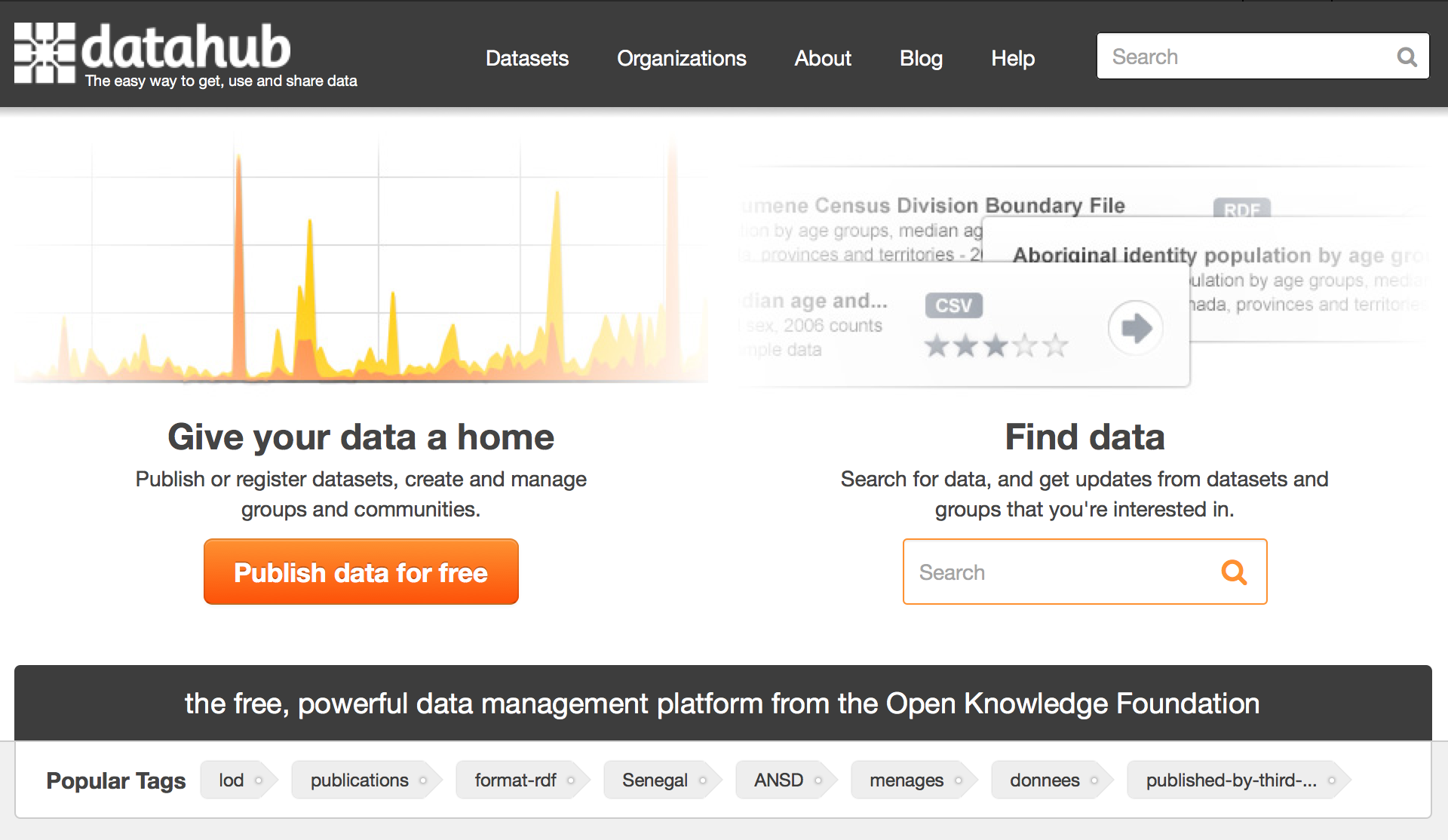Back in March, I wrote about a CKAN extension for publishing and
exporting Data Packages1. This extension, datapackager, has been
updated and is now live on our very own CKAN instance,
DataHub. DataHub users can now import and export Data Packages
via the CKAN UI and API. This post will show you how.
DataHub and Data Packages
DataHub is a free, powerful data management platform hosted by Open Knowledge International. It is powered by CKAN, the leading open-source data management system used by governments and civic organizations around the world—including Data.gov and data.gov.uk. In this post, I describe how to load “Data Packages” onto DataHub to take advantage of CKAN’s powerful visualization and analytics features.
A Data Package is a coherent collection of data, metadata, and other assets. Open Knowledge International is currently working on Frictionless Data, a project aimed at creating an ecosystem for frictionless data transport by defining the Data Package standard and designing the tools and integrations that support them. Given its ubiquity as a data publishing platform, CKAN support is an important part of this strategy.
Importing a Data Package into DataHub.io
- Register on DataHub: If you’re not already a DataHub user, you will need to register for an account. Once registered, you will also need to request an “organization” via our forum. New datasets can only be loaded on DataHub if they are associated with an organization.
- Create Your Data Package: If you don’t have your data in a Data Package already, you can visit this online Data Package creator or create a Data Package programmatically in Python. If you are just interested in trying out this demo, you should be able to visit the datasets organization on GitHub and download any of the repos as a zip file.
-
Zip your Data Package: If you created your Data
Package in the previous step,e create a new zip file from the Data
Package folder with the
datapackage.jsonat the root. If you are on a Unix-type machine, you can usually runzip -r my-datapackage-to-import.zip <data package directory>. Note: make sure your packaged data, unzipped, is less than the 100MB, as this is current size limit on DataHub. - Import your Data Package: While signed in, click on “Import Data Package” on the page of the organization you created in Step 1, and upload the zipped Data Package you created in the previous step.
Once your Data Package has been successfully imported, you should be to use the dataset as you would any dataset on the DataHub. This includes adding or editing any of your dataset’s metadata, or, accessing the dataset using the CKAN API.
Screencast
This screencast walks through the import steps outlined above.

Exporting a Data Package from DataHub.io
Exporting a Data Package from DataHub is even easier. Just navigate
to the dataset you’d like to export, click on “Download Data Package”,
and a datapackage.json file will be downloaded to your computer.
The JSON file will contain the Data Package representation of the
metadata stored on DataHub as well as links to the resources stored on
DataHub.
CKAN Data Packager and Other Extensions
For information on importing and exporting data via the
CKAN API or, if you are interested in adding datapackager to
your own CKAN instance, you can read more on the extension
repository.
Of course, CKAN is not the only data repository software we are looking to support. A major aim of Frictionless Data is to create integrations with the many different types of tools and platforms people already use for working with data. Visit our User Stories page to learn about the kinds of use cases and data workflows we’re looking to support. Let us know how you store your data and what you would like to see next!


 We make tools, apps and insights using
open stuff
We make tools, apps and insights using
open stuff


Comments